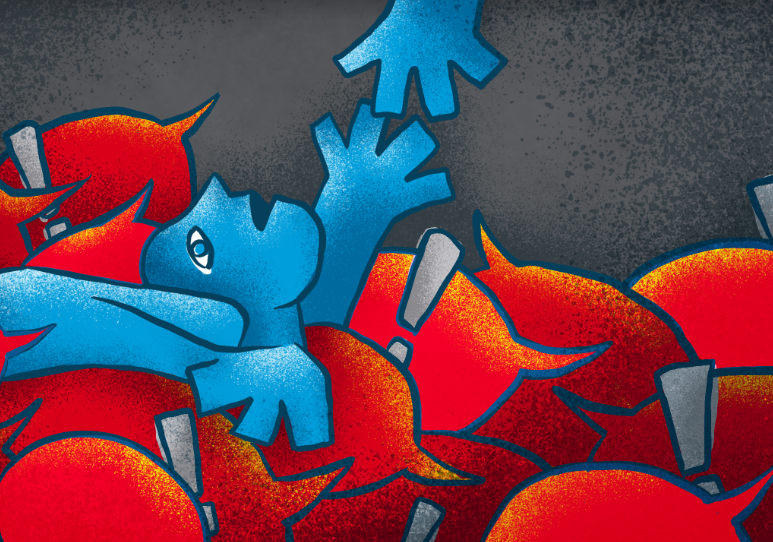Hate speech is on the rise. Slurs used against gay men have increased by 58% on Twitter after Elon Musk took ownership of the platform, and the amount of antisemitic posts rose by 61%, according to the Center for Countering Digital Hate. Whether found on social media, in bathroom stalls or through in-person experiences, hate speech harms individuals and society. In the United States, hate speech is seen in comments from Kanye West, homophobic remarks thrown at LGBTQ+ couples and racist jokes told in viral videos.
Hate speech entails a form of expression that places prejudice against people who are part of a minority group and may justify violence or discrimination against said groups. This type of offensive language greatly affects the victims’ mental health and general well-being. According to the Centers for Disease Control (CDC), hate speech, violence and online bullying can lead to a higher risk of suicide and self-harm. Out of 155 Heritage students surveyed, approximately 48% report that their friends, their peers or themselves have been personally affected by hate speech inside or outside school. 43% report that they have heard hate speech at Heritage, including hate towards LGBTQ+ students, people of color and antisemitic comments. Approximately 29% of those surveyed report having witnessed or been a victim of a hate crime as a direct result of hate speech.
Hate speech has the potential to create a drastic division between different communities. People who use hate speech, no matter the context, will harm people in the minority and damage the strong community Heritage is known for. Students who are affected by hate speech may experience an increase in feelings of hopelessness and may struggle to feel included in the school environment. Students who instigate hate speech, however, will form groups who enable offensive behavior. Heritage students believe that staff should take more action to educate the community about the origins and effects of hate speech, as well as communicate what disciplinary action will be taken with students who use hate speech.
While many students who use hate speech may view it as a harmless joke, hate speech has origins in serious prejudice and should not be taken lightly. The best way to address hate speech at school is to hold students accountable and report it to an administrator. If you or a friend need help with hate speech or bullying at school, contact your counselor via email or appointment.
